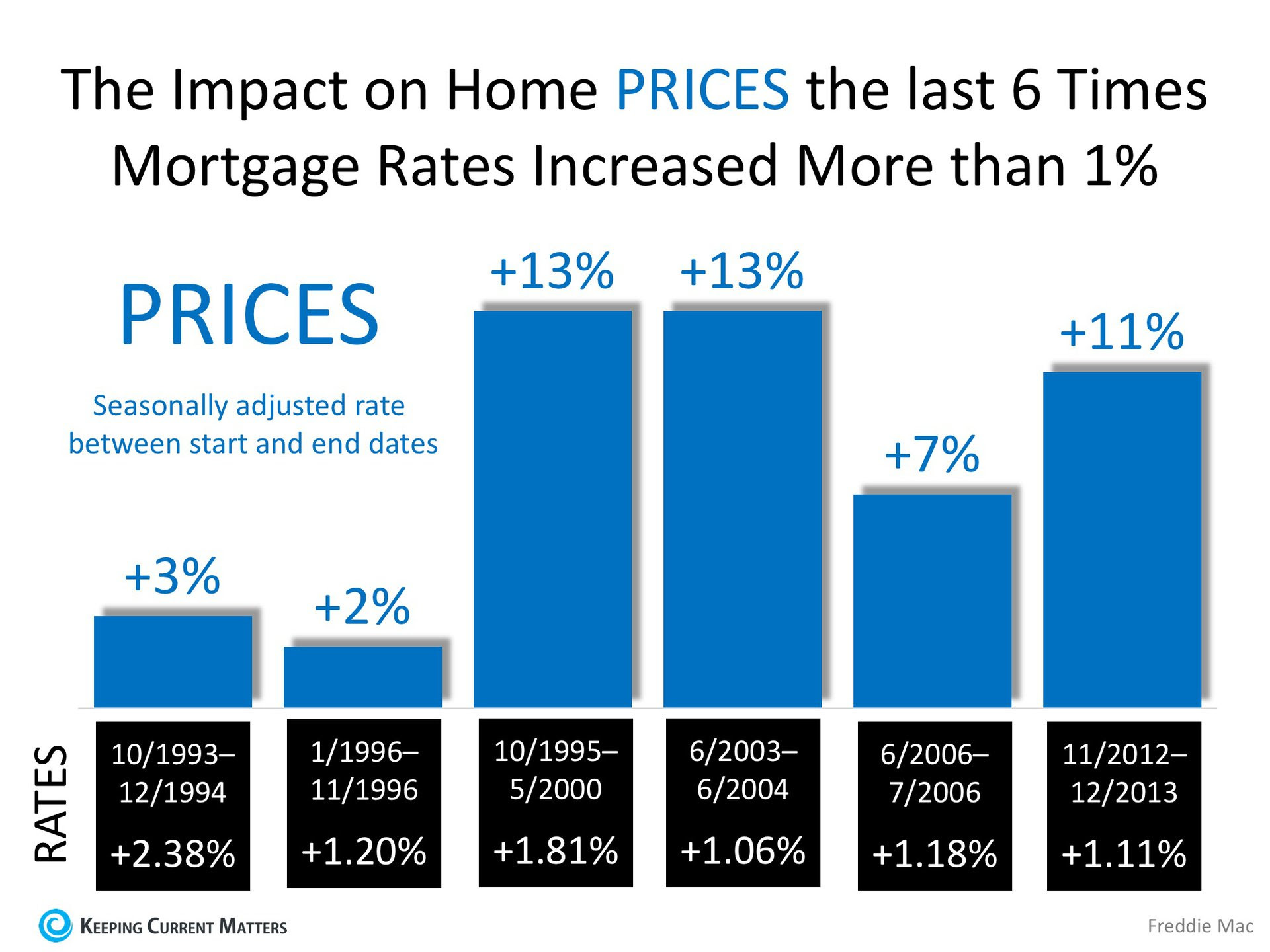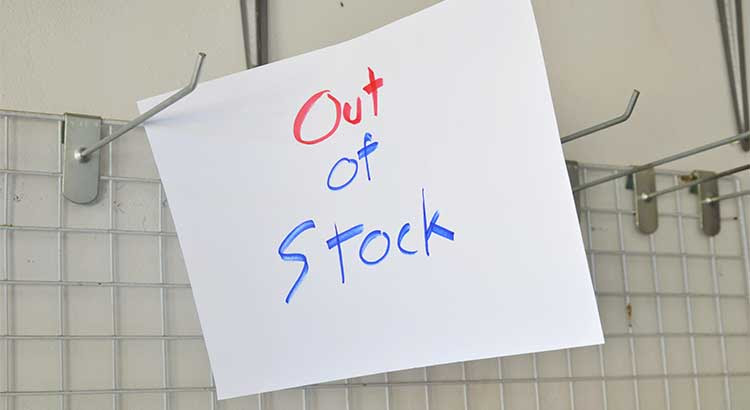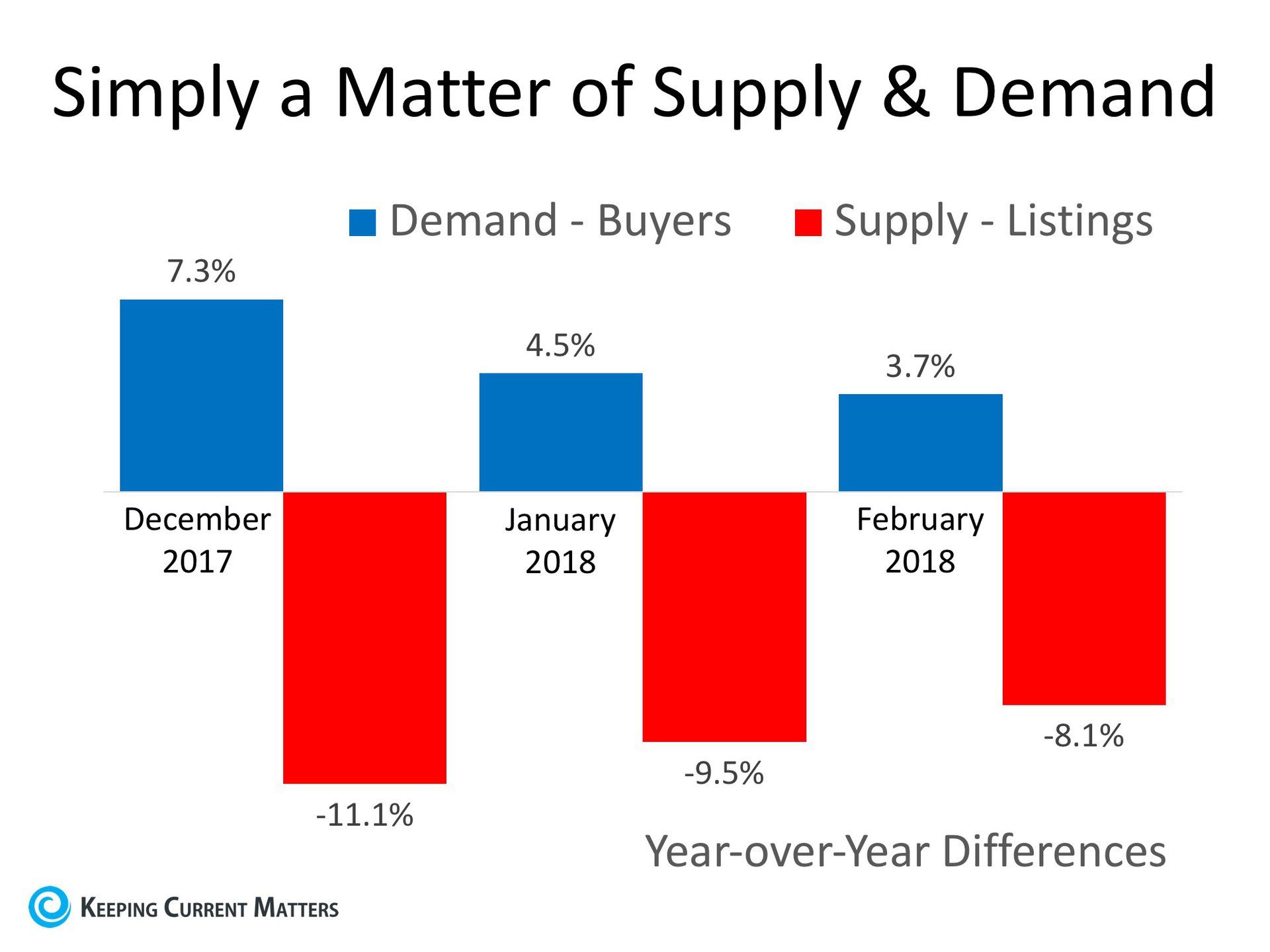Here are five reasons listing your home for sale this spring makes sense.
1. Demand Is Strong
The latest
Buyer Traffic Report from the
National Association of Realtors (NAR) shows that buyer demand remains very strong throughout the vast majority of the country. These buyers are ready, willing and able to purchase…and are in the market right now! More often than not, multiple buyers are competing with each other to buy a home.
Take advantage of the buyer activity currently in the market.
2. There Is Less Competition Now
Housing
inventory has declined year over year for the last 32 months and is still under the 6-month supply needed for a normal housing market. This means that, in the majority of the country, there are
not enough homes for sale to satisfy the number of buyers in the market. This is good news for homeowners who have gained equity as their home values have increased. However, additional inventory could be coming to the market soon.
Historically, the average number of years a homeowner stayed in their home was six but has hovered between nine and ten years since 2011. There is a pent-up desire for many homeowners to move as they were unable to sell over the last few years because of a negative equity situation. As home values continue to appreciate, more and more
homeowners will be given the freedom to move.
The choices buyers have will continue to increase. Don’t wait until this other inventory comes to market before you decide to sell.
3. The Process Will Be Quicker
Today’s competitive environment has forced buyers to do all they can to stand out from the crowd, including getting pre-approved for their mortgage financing. This makes the entire selling process much faster and much simpler as buyers know exactly what they can afford before home shopping. According to
Ellie Mae’s latest
Origination Insights Report, the average time it took to close a loan was 45 days.
4. There Will Never Be a Better Time to Move Up
If your next move will be into a premium or
luxury home, now is the time to move up! The inventory of homes for sale at these higher price ranges has forced these markets into a buyer’s market. This means that if you are planning on selling a starter or trade-up home, your home will sell quickly, AND you’ll be able to find a premium home to call your own!
Prices are projected to appreciate by 4.8% over the next year according to CoreLogic. If you are moving to a higher-priced home, it will wind up costing you more in raw dollars (both in down payment and mortgage payment) if you wait.
5. It’s Time to Move on With Your Life
Look at the reason you decided to sell in the first place and determine whether it is worth waiting. Is money more important than being with family? Is money more important than your health? Is money more important than having the freedom to go on with your life the way you think you should?
Only you know the answers to the questions above. You have the power to take control of the situation by putting your home on the market. Perhaps the time has come for you and your family to move on and start living the life you desire.
That is what is truly important.

![A Tale of Two Markets [INFOGRAPHIC] | Keeping Current Matters](https://blogger.googleusercontent.com/img/proxy/AVvXsEj7gN1YV4QTN_5uEtJam4jNJELWTmzyHo4d4NvJcARfyoLiFLa45qlkFJ460zX2vFGnUtlxGeY6Z3JI33ZsEXPgX_eCwpJ8kcQT-z9k_mb6rYzZv8Sz9lVb6WceNbBsZK6703KwL3iit0-dJ3asGEccEx0tiZEmzCN7goHumh9dTsUGJG86S4iYXfFvETyNWorfJrDkZsaU_EOj1siHFqHxkU3f=s0-d-e1-ft)


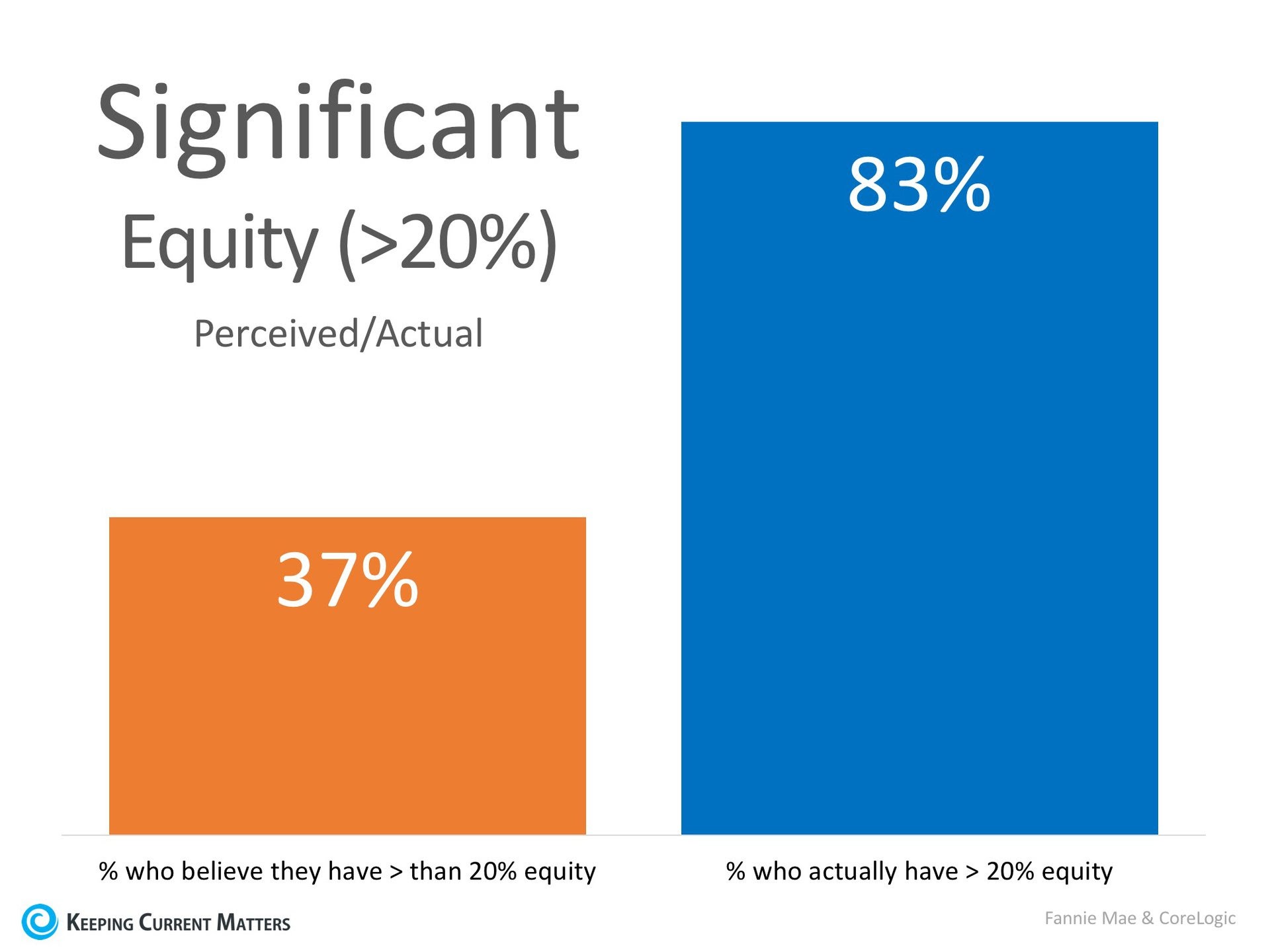



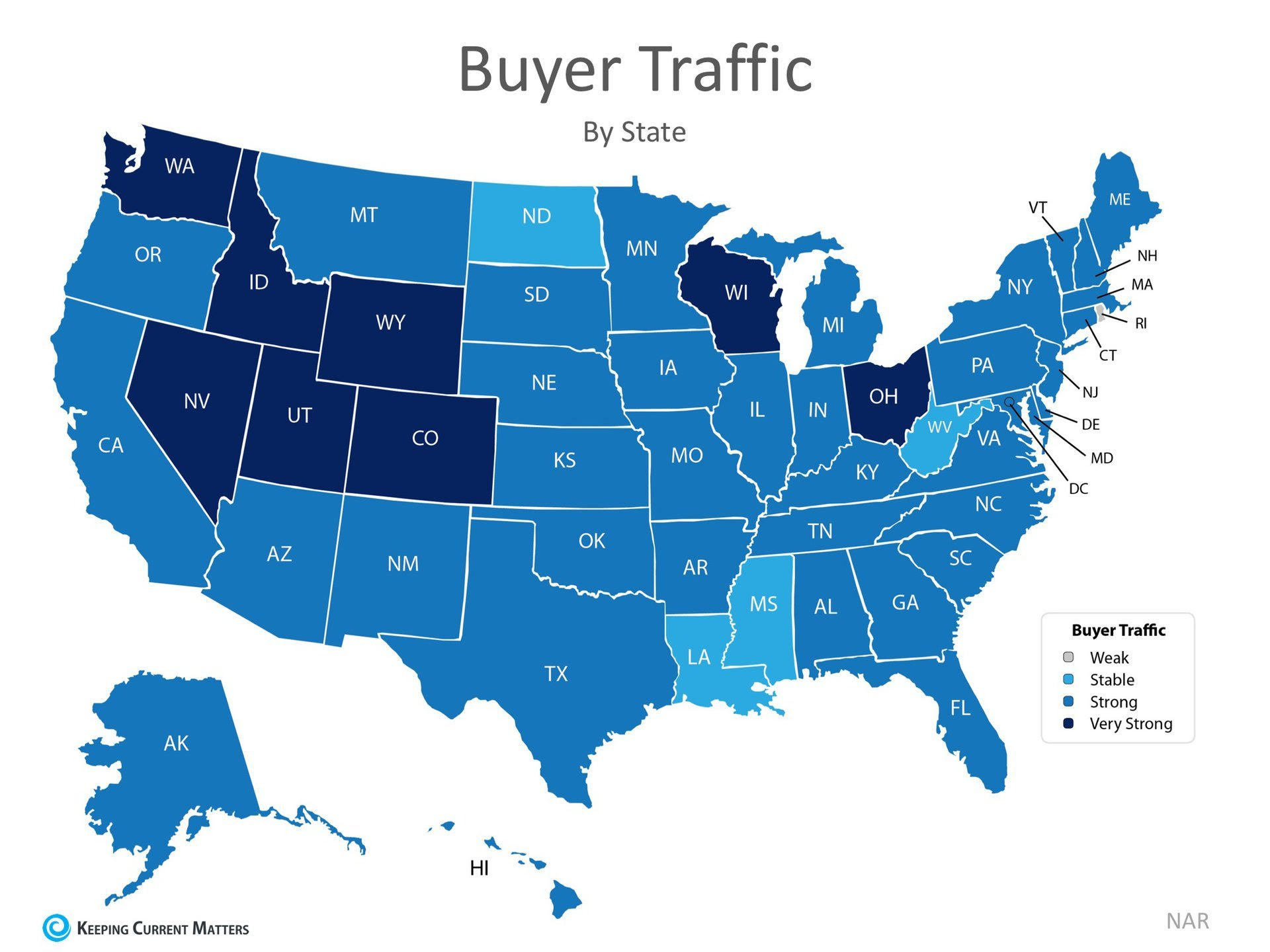
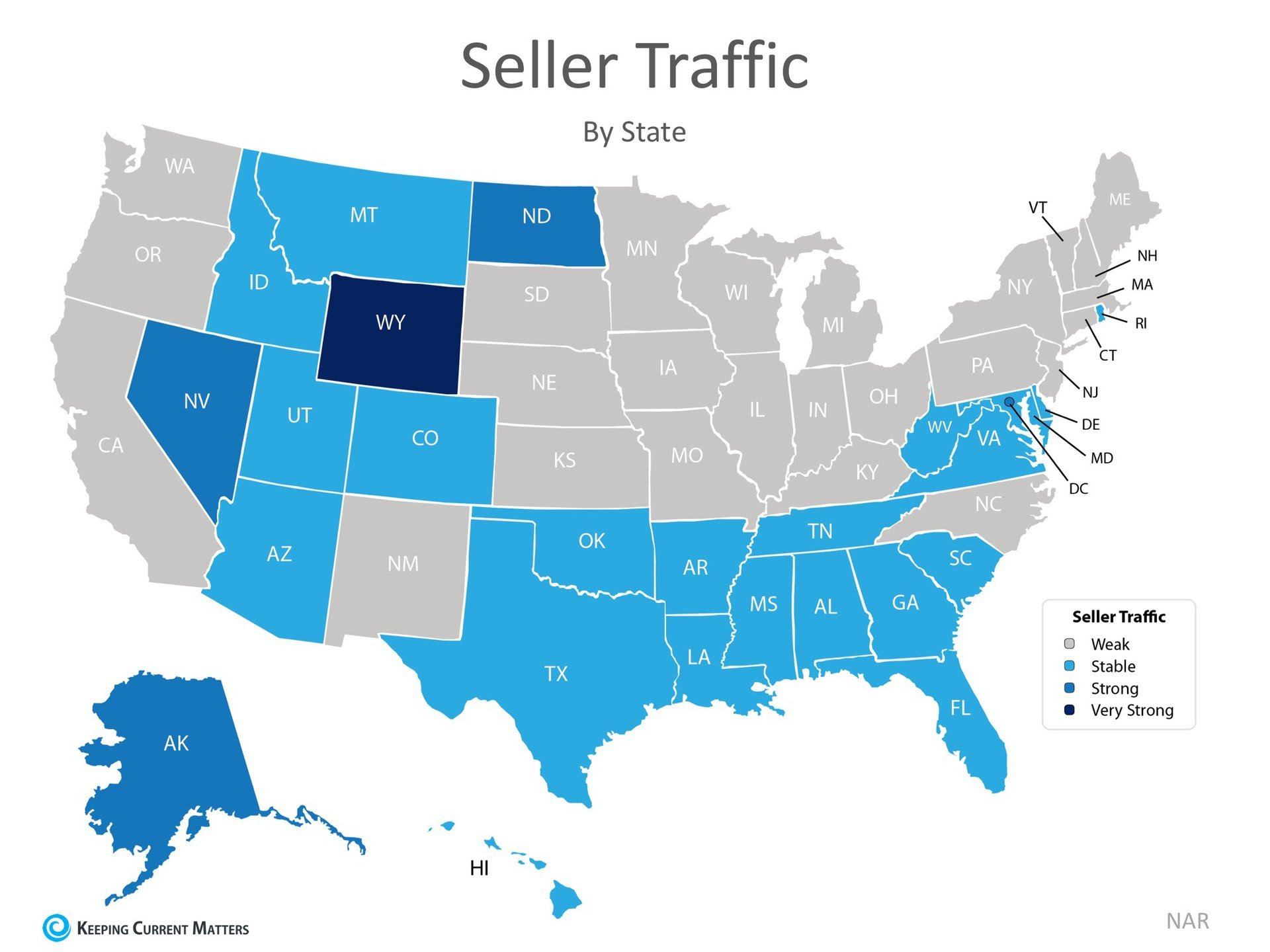

![Tips for Preparing Your House for Sale This Spring [INFOGRAPHIC] | Keeping Current Matters](https://blogger.googleusercontent.com/img/proxy/AVvXsEgs9IeGpCE9lbCOHElSwK3PnHuze4W_nlMcFB8AdDm9A6ifO00igZOhhU9v46SlLg0YqWslb-Ygrranr1kQxhFRjvhK2UP-7LgXN1hjXTM_5wTIcQKLy09NZmhbqDMSjrzNYYeIAx8q8Faefnn9viRRU7Y47H2nC3VMozBX44BtH4HRyOEgfI1qqhEWjU16Uga7FTmkrTmPGIzAZH76THk_2v2s6fblLz_s0u8LFUANewY=s0-d-e1-ft)

